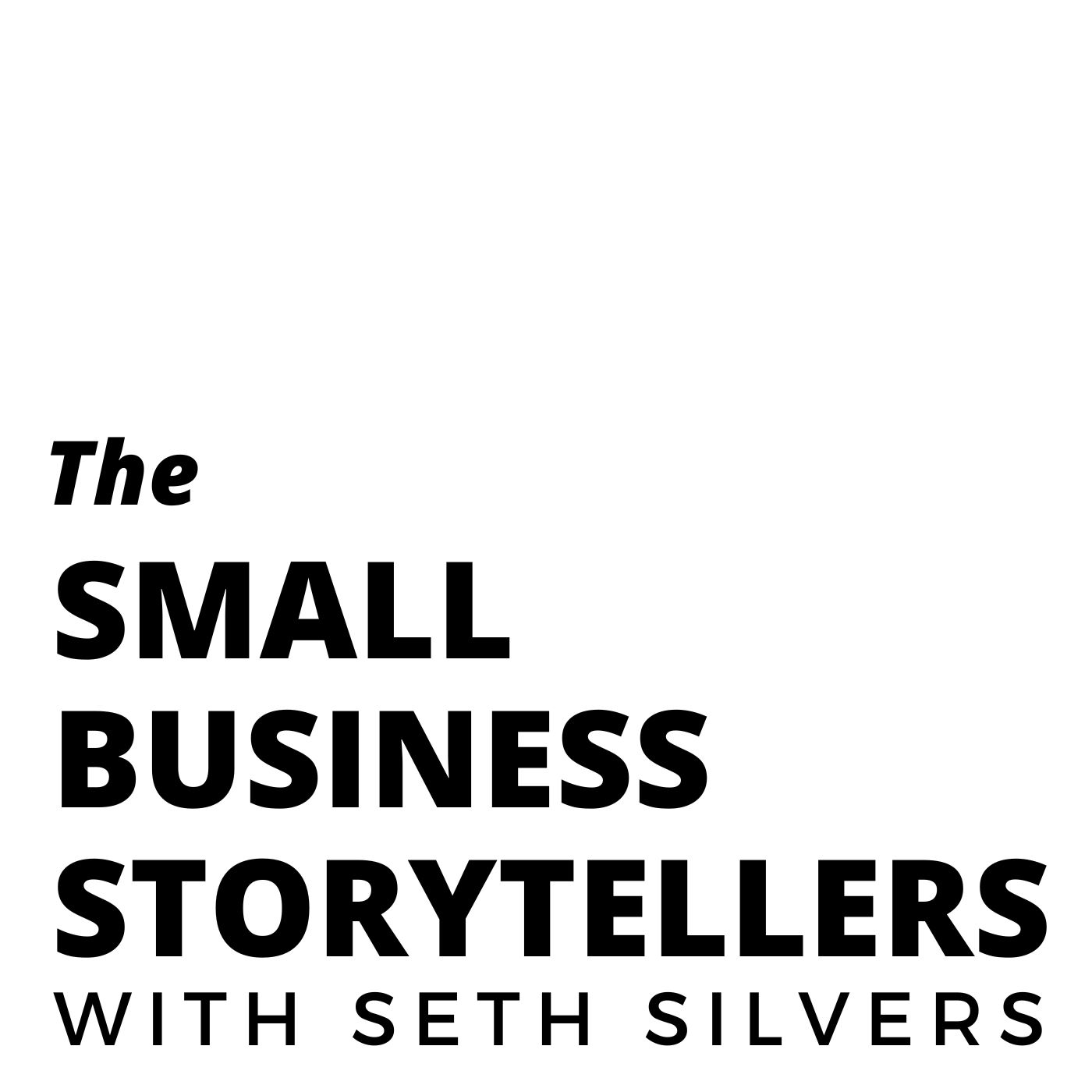
Podcasting Made Simple
Podcasting Made Simple is the premier podcast about podcasting! We’re here to help podcast guests and podcast hosts reach more listeners and grow their income so they can change more lives! Join Alex Sanfilippo and other podcasting industry experts as they share how you can level up on either side of the mic! (Show notes and resources: https://PodMatch.com/episodes)
Podcasting Made Simple
The Perfect Podcast Guesting Pitch | Lauren Cockerell
As the world continues to discover the power of podcast guesting, it is becoming increasingly difficult to be selected as a guest. Thankfully, there is something you can do to stand out from the masses. In this episode, Lauren Cockerell shares how top PR agencies pitch to get on podcasts as a guest. Get ready to revolutionize your approach to podcast pitching so you can secure more guesting opportunities than ever before!
MORE FROM THIS EPISODE: HTTPS://PODMATCH.COM/EP/285
Chapters
00:00 Introduction and Overview
01:30 Common Pitching Mistakes
08:12 Researching and Building Relationships
09:37 Crafting Great Pitches
11:34 Offering to Promote the Episode
12:33 Final Takeaways
Takeaways
- Caring about the person you're pitching to and their audience is the most important secret to pitching success.
- Avoid common pitching mistakes such as not customizing your pitch, sending vague or overly long pitches, and pitching to irrelevant shows.
- Research the podcast you're pitching to and tailor your pitch to their specific show and audience.
- Build a genuine relationship with the host by being yourself and making their life easier.
- Offer to promote the episode and show that you value cross-promotion.
- Show that you care and value the host's time to become a favorite guest.
MORE FROM THIS EPISODE: HTTPS://PODMATCH.COM/EP/285
📊 This month's Independent Podcasters Report is now available! To see podcasting industry insights that matter for indie podcast hosts and podcast guests, please visit https://PodMatch.com/Report!
You're listening to Podcasting Made Simple. Do you ever feel like you'd be the perfect fit for a podcast? You just can't get the host to respond to your messages? Are the only hosts saying yes to your pitches? The ones who have audiences who can't do business with you? Whether you're tired of radio silence, mismatched fits, or you simply want to snag more guessing opportunities, you could benefit from knowing some of my top PR secrets to help you and your podcast pitching. My name is Lauren Quedar Cockrell and I've been honing my PR pitching skills for over 20 years. Question for you. Have you given any thought lately to how much the media landscape has changed in the past 20 years? If you haven't, let me tell you, it's changed a lot. And pitching and securing media coverage for my clients has only gotten harder, more time consuming and more complex over the years. When I started in public relations in 2003, There was no Facebook and there were no podcasts. Print and broadcast media ruled the day and we literally sent news releases by fax. I'm very glad we don't do that anymore. Fast forward to today and there are more channels and opportunities than ever before. But guess what? My team's pitches are more successful now because of these tips and secrets that I'm going to share with you today. First, we'll talk about what not to do. If you're tuning into this, you're likely making at least one of these mistakes I'm seeing every day. Trust me. Based on the volume of bad pitches we've seen, what I thought were standard practices are actually not standard at all. Then we'll talk about great pitches that work. But first, I'm going to give you my most important, most sacred, and most simple secret to pitching success. Are you ready for it? Here it is. You have to care. You have to care about the person you're pitching to, and you have to care about their audience. If you only care about yourself, the recipient can sniff it out in an instant. So whether you're pitching for yourself or on someone else's behalf, that is the first and most important secret. Why? Because showing you care is a shortcut to building in nurturing a relationship. And that is how my team has been so successful, even in this deeply fractured media landscape. We build and nurture relationships with reporters, editors, podcasters, influencers, and more. Think about your daily life. Imagine your favorite person. Would you rather spend time with them, or would you rather hang out with a pushy stranger? When you are in a relationship with someone, they're so much more likely to want to work with you and help you. The same goes for PR and pitching. Now let's talk about what not to do. I'm going to give you a few examples of really bad pitches that I've received as a podcast host. Honestly, y 'all, when we opened our podcast up to receive inquiries from prospective guests, I never in a million years could have guessed how many bad pitches I would get. Let's say we receive 20 pitches a day. Only two to three are what we would consider good or even great. There are about three or four more that are okay enough for us to maybe explore further, and the rest are just not good. And now that you know the number one secret to success, you'll see right away that all these pitches I'm gonna share with you have something in common. Not one of these potential guests cared about me, the host, or my listeners. So before you twist yourself up in knots worrying about pitch length or the correct amount of details, First, take a step back and ask yourself, how can I show that I care about the person I'm sending this message to? This is something we practice and preach in our PR work. Reporters and journalists receive a deluge of emails and pitches every day. We have to quickly show them that we know who they are and who their audience is. In short, we have to show them that we care about their work and how we're going to help them. We'll get into the how -tos in a moment. But let's pause here to reflect on if you've been guilty of sending some pitches that aren't as good as they could be. And don't feel bad. Don't feel bad if you've done this before. We've all done it, truly. We've all been in a hurry. We've all wanted to check this off of our list. But once you know better, it's time to do better. Let's hear some examples that fall into a few categories. And no, these aren't just a couple of messages. These are not isolated incidents. We get inquiries like this daily. Okay, example one. not taking the time to customize your pitch template. For instance, if you have a pitch template, be sure to change the words, insert podcast name here, to the actual name of the podcast you're pitching yourself to. Slowing down for a brief moment to remove placeholder language shows the bare minimum of care. And let me be clear, I don't mind a pitch template. I love them. We certainly use them all the time, but it's gotta be good. And... When you leave that room for customization, which you should, make sure you make those important edits. And we'll talk about how to make it good in a second. Okay, example two. Someone once sent me a note that simply read, I'd love to be a guest on your show. And I get versions of this message all the time. And while I appreciate the enthusiasm and the brevity of the message, where is a host supposed to go with that? We don't know each other. And you've given me no information to go off of. So is the expectation that I should take extra time to go to your profile or your website or your social channel to figure out if you're the right fit, whether you realize it or not, a vague unhelpful message that isn't a pitch at all communicates that your time is more valuable than mine. So my team automatically deletes messages like this. Example three, conversely, we occasionally get a pitch that is like the war and peace of pitches. And while a long story isn't necessarily a bad thing, it too feels like you're communicating that your time is more valuable than the reader's. If you have a ton of great info to share, please share it. But first, take a minute to guide the recipient. We need some sort of TLDR section at the top. Too long, didn't read. So you can acknowledge that there's a bunch of information in this pitch, but here's why it's important to you, the reader, and why you'll make a wonderful guest on the show. The amount of time I've spent scrolling up and down trying to quickly discern if I need to pay attention to this pitch is just too much. Show you care and add a quick intro. And finally, example four. And this is something that reporters and journalists get all the time too. Your pitch isn't relevant to the show. Let's say for instance, you're an expert in lawn care and you wanna talk about ways that keep lawns green and free of weeds. Please don't pitch to a podcast that has nothing at all to do with your expertise or life experience. If you're a working parent who's a lawn care expert, you can definitely pitch yourself to working parent podcasts. If you're scaling your lawn care business and you advise to share about your entrepreneurial journey, you should absolutely share that story with business and entrepreneurship shows. If you've cracked the code on pay -per-click advertising for your lawn care business, then digital marketing podcasts would be a great fit for you too. You should feel free to be creative and to extrapolate, but you must connect those dots for the show host. So first make sure you're pitching to a relevant show and then make it clear why you are a great guest. Okay, so those are the major categories of bad pitches. And as you just heard, they all relate back to not caring or at least making it seem like you don't care. So now you're probably wondering, okay, great. Thanks a lot, Lauren, but how do I show I do care? All right, first, If you do the opposite of everything I just said, you're well on your way. But we can dial it in even further and set you and the podcast you appear on up for success. PR secret one. One of my key steps to securing great coverage, which includes landing excellent podcast gigs, is this. Research who you're pitching to. This goes such a long way into helping you communicate that you care. Here are a few things I look at when I'm researching a podcast to pitch to. I look at the number of episodes and reviews and I scan the content of the reviews. I look at the host's requirements for guests, as well as who the audience of the podcast is. I scan through recent episodes to see if there are any trends in topics or guests. I also look at how the host promotes the podcast in each episode to make sure that it's in line with our brand. After I've taken a few minutes to do this initial research, I can then decide, If this is a show that's a good fit for my expertise and whether I have something to add to the conversation. If not, I move on. If the host has recently interviewed three other PR experts, but I still feel like I can add a new and different perspective, then that is something really important to point out in my pitch. All right, so you've done your research and you feel really good about the show you're pitching to. Congratulations, you're already miles ahead of other guests. Now it's time to reveal PR secret two, build a... Genuine relationship with the host. Important emphasis on genuine. Please be yourself. If you're pitching on someone else's behalf, be yourself there too. Podcasts hosts receive so many pitches every day. And to be honest, it can be overwhelming. If you make the host life easier, you will win. Here is an example formula for great pitches that work. Step one, if you're sending an email pitch, craft a killer subject line, but no. Clickbait. It is really annoying. Step two, acknowledge the title and theme of the show. Step three, tell the host why you're drawn to their show. Did you listen to any episodes? What did you like? Are they marrying unique and disparate topics in a way you've never seen before? Tell them that. If you give a compliment, make it sincere and specific. Step four, tell them why you would be a great guest on their show. What are some topics? Just two or three you can discuss. that makes sense for their show specifically. Then don't just say it, prove it. If you have a couple of fantastic interviews, bonus points if they're on high profile shows, drop those links into your pitch. Again, just two or three. Step five, offer to do a pre -interview call to discuss topics or ideas. The host may not wanna do a pre-interview, but showing that you're willing to tells them that you take the quality of this episode seriously. Step six, tell the host how you're going to help promote your episode. and include links to your website and social channels. Do you know what's a real bummer? When we publish a fantastic episode and the guest doesn't bother to promote it at all, that cross promotion is so important to the podcast host because it's helping them grow their audience. This is one of my PR tips and tricks too. And we see this with both reporters all the time. If you don't amplify that coverage, they're less likely to help you share your news next time. Step seven, wish them well and sign off. If you have some more in -depth details that you feel really strongly about including, hold those for below your signature and make sure to use bullet points and other formatting to help break up big chunks of text to make it easy to scan. This mirrors how we pitch news releases. We do a nice punchy pitch and then we include the news release below our signature so that the reporter can dig into the juicy details if they're interested. Again, you can definitely templatize this. And you can even create multiple templates if you have different content pillars. Perhaps you want to speak to being a leader, a working parent, and an activist. You can create different pictures that speak to one, two, or all three of these areas of your life. But do not forget to customize the pitch to each podcast host. All right, and as we wrap up, I want to leave you with the main points I hope you take away from today as you pitch yourself in the future. One, please show that you care. And two, show that you value the host's time. If you can achieve those two priorities, you will be well on your way to being everyone's favorite guest. Happy pitching. For more episodes, please visit podmatch.com forward slash episodes. Thank you so much for listening.










